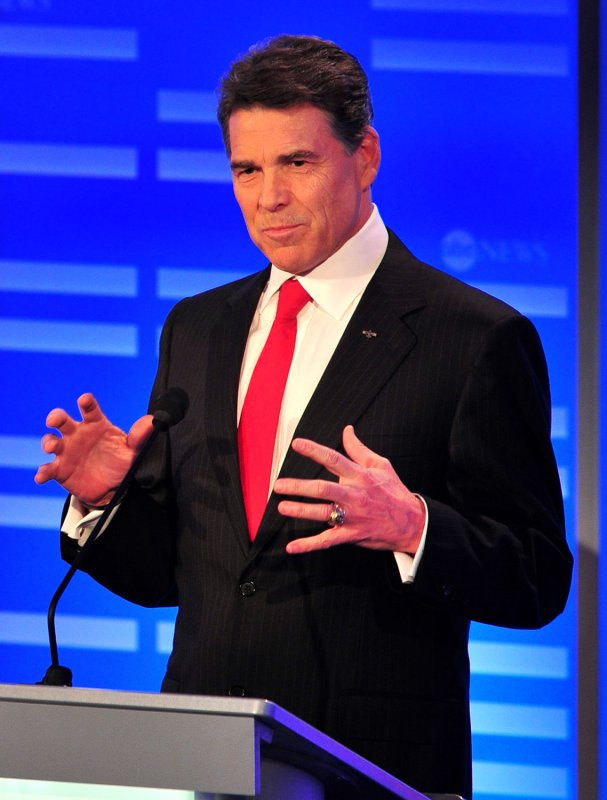Rick Perry participates in a Manchester, N.H., debate Jan. 7, 2012. UPI/Kevin Dietsch |
License Photo
RICHMOND, Va., Jan. 11 (UPI) -- A U.S. District Court judge in Virginia ordered election officials to stop printing ballots for the state's Republican primary until a challenge is resolved.
In a federal lawsuit, Texas Gov. Rick Perry disputed a decision by Virginia officials not to include his name on the ballot, arguing it was unconstitutional for Virginia's General Assembly to require ballot petition collectors to be Virginia residents, either as registered voters in Virginia or eligible to register to vote in the state.
Judge John Gibney's order issued Tuesday reversed a ruling he made in December, which denied Perry injunctive relief. Gibney, sitting in Richmond, scheduled a hearing for Friday.
Intervening in Perry's case was former House Speaker Newt Gingrich, former U.S. Sen. Rick Santorum of Pennsylvania and former Utah Gov. Jon Huntsman. Only former Massachusetts Gov. Mitt Romney and U.S. Rep. Ron Paul of Texas qualified to be on Virginia's ballot.
Gibney rejected state officials' arguments that a delay would back up printing ballots and mailing them to absentee and overseas military voters, saying the delay was only a few days until the hearing.
"The public interest," Gibney wrote, "weighs heavily in favor of the plaintiffs."
His order also tells the state Board of Elections to instruct local election officials not to distribute ballots until after Friday's hearing, and to delay ordering ballots printed if they haven't done so already.
In his order, Gibney indicated there was a "strong likelihood" the court will find the residency for petition circulators to be unconstitutional.
"The authorities make clear that circulating petitions for candidates is a form of protected speech and that the commonwealth has a heavy burden to justify the restriction on speech by showing not only that the limitation achieves a valid state interest but also that the limitation is no broader in scope than necessary to achieve that purpose," the judge said.















